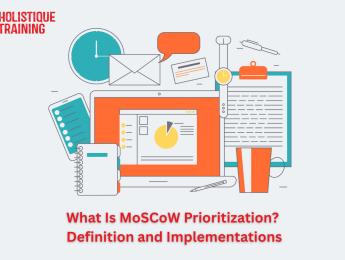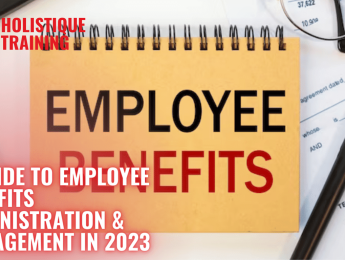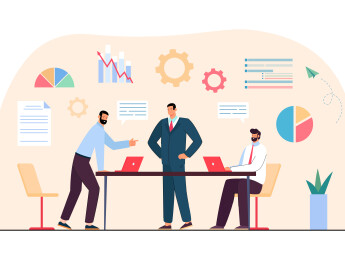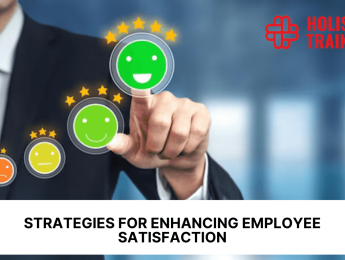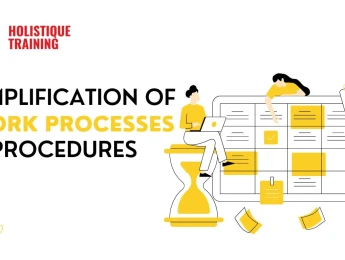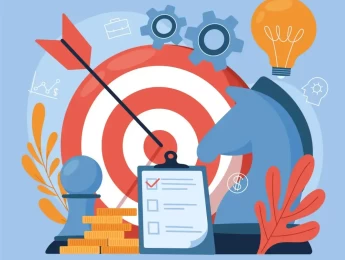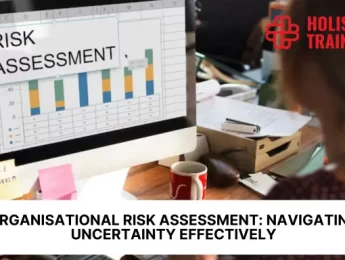- Table of Contents
- Introduction
- What Is Decision-Making?
- Why Is Decision Making Important at Work?
- Efficiency and Productivity
- Innovation and Adaptability
- Employee Engagement and Satisfaction
- Cost Management and Risk Mitigation
- Customer Satisfaction and Loyalty
- Strategic Growth and Long-Term Success
- Examples of Decision-Making Process Failures
- Lack of Information - The Challenger Disaster
- Emotional Bias - The Fall of Lehman Brothers
- Failure to Adapt - Blockbuster's Missed Opportunity
- Ignoring Ethical Considerations - Volkswagen's Emissions Scandal
- How to Improve Decision-Making Skills
- Expand Your Knowledge Base
- Cultivate Patience
- Gather Sufficient Information
- Analyse Pros and Cons
- Consider Long-Term Implications
- Seek Diverse Perspectives
- Learn from Mistakes
- Develop Intuition Through Experience
- Practice Mindfulness and Emotional Intelligence
- Utilise Decision-Making Tools
- Seek Feedback and Reflection
- Simulate and Role-Play Decision Scenarios
- The Role of Artificial Intelligence in Decision-Making
- Data-Driven Insights
- Enhanced Predictive Analytics
- Personalisation and Customer Engagement
- Automation and Process Optimisation
- Healthcare Diagnosis and Treatment
- Risk Management
- Natural Language Processing (NLP)
- Ethical Considerations
- Continuous Learning
- Human-AI Collaboration
- Conclusion
Introduction
In every aspect of our lives, we face countless choices and decisions. From the mundane choices of what to wear or eat to the more complex decisions that shape our careers and relationships, decision-making is an inherent part of being human. Making effective decisions is a crucial skill that can significantly impact our personal and professional lives. This comprehensive exploration of decision-making will delve into its importance, particularly in the workplace. We will also examine real-world examples of decision-making failures and provide actionable strategies to enhance decision-making skills, focusing on data-driven decision-making. Additionally, we will introduce three intriguing sections that delve deeper into various aspects related to decision-making.
What Is Decision-Making?
Decision-making is the process of selecting the best course of action from among several alternatives. It involves assessing available options, weighing the pros and cons, considering potential risks, and ultimately making a choice. Whether consciously or unconsciously, we make daily decisions, ranging from trivial matters to life-altering situations.
Decision-making is not just a cognitive process; it's a complex interplay of various factors. It involves rational thinking, emotions, intuition, and sometimes even cultural and societal influences. The human brain is a remarkable organ that simultaneously processes many inputs and variables. In decision-making, this means that our brains sift through a vast amount of conscious and subconscious information to arrive at a choice.
Moreover, decision-making is not a one-size-fits-all process. It adapts and evolves depending on the context and the stakes involved. Decisions may need to be made swiftly in high-pressure situations, relying on intuition and experience. In contrast, organisational strategic decisions often require meticulous analysis and collaboration among multiple stakeholders. Recognising the nuances of decision-making and developing the flexibility to adjust your approach according to the situation is key to becoming a proficient decision-maker. It's not merely about making choices; it's about making the right choices at the right time for the right reasons.
Why Is Decision Making Important at Work?
Efficiency and Productivity
Effective decision-making is the cornerstone of efficiency and productivity in the workplace. Imagine a scenario where every decision is delayed or mired in indecision. Projects would stall, deadlines would be missed, and resources would be wasted. In contrast, when individuals and teams possess strong decision-making skills, they can swiftly assess situations, identify optimal courses of action, and execute tasks precisely. This agility results in streamlined processes, increased workflow, and a workplace that operates like a well-oiled machine. Additionally, efficient decision-making enables organisations to respond promptly to challenges and changes in the market, staying ahead of competitors and maintaining a competitive edge.
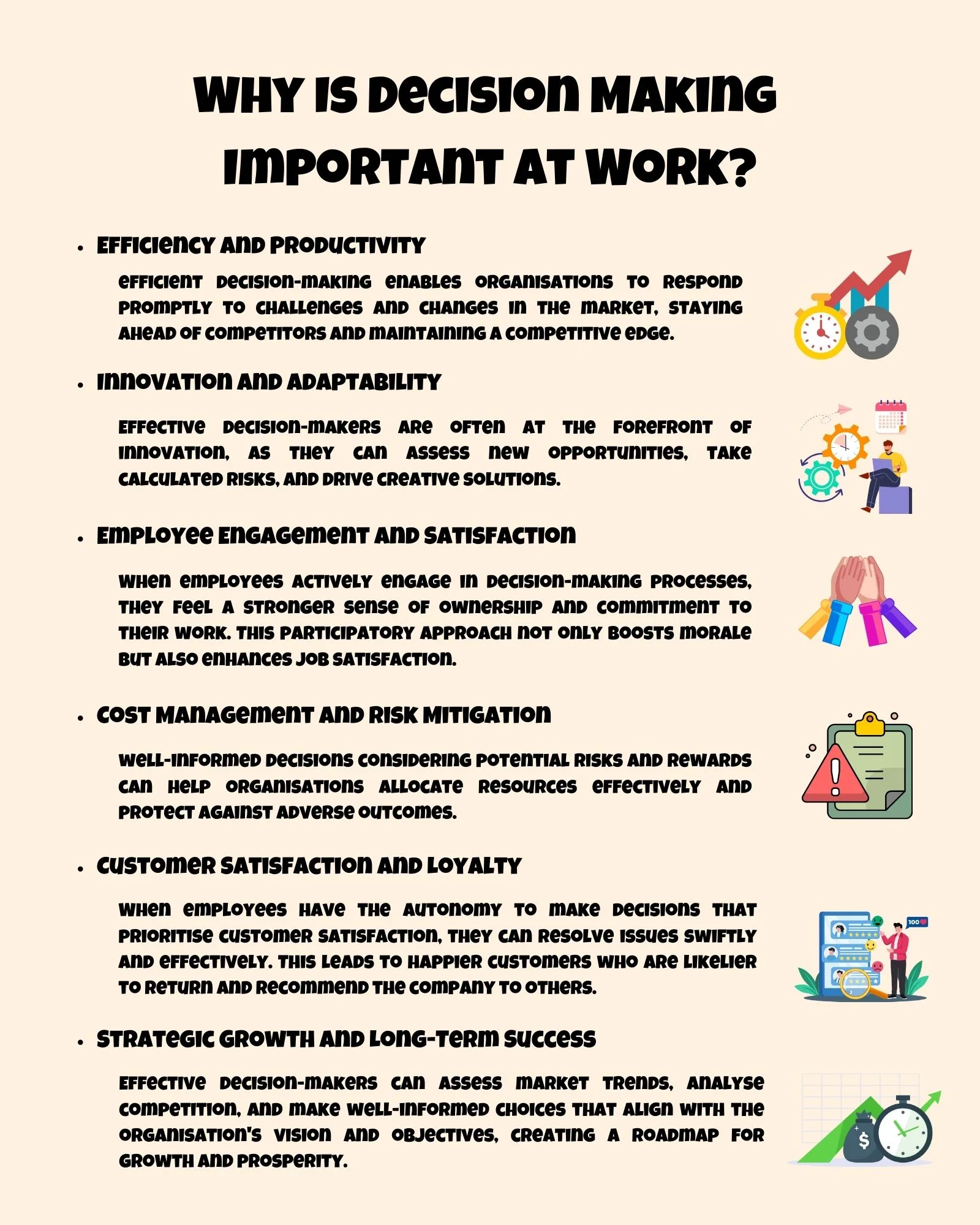
Innovation and Adaptability
Decision-making is not just about maintaining the status quo; it's also about fostering innovation and adaptability. Organisations must continuously innovate to stay relevant in today's fast-paced and dynamic business environment. Effective decision-makers are often at the forefront of innovation, as they can assess new opportunities, take calculated risks, and drive creative solutions. Moreover, their ability to adapt to changing circumstances and market dynamics ensures that organisations can confidently navigate uncertainties. By encouraging a culture of innovation and adaptability through sound decision-making, companies can position themselves as industry leaders.
Employee Engagement and Satisfaction
Decision-making extends beyond leadership; it involves all levels of an organisation. When employees actively engage in decision-making processes, they feel a stronger sense of ownership and commitment to their work. This participatory approach not only boosts morale but also enhances job satisfaction. Employees who believe their voices are heard are more likely to be motivated and productive. Furthermore, they may offer valuable insights and perspectives that leaders might have otherwise overlooked. This way, effective decision-making fosters a collaborative and inclusive work environment, where every team member contributes to the organisation's success.
Cost Management and Risk Mitigation
Prudent decision-making is essential for cost management and risk mitigation. Poor decisions can lead to financial losses, operational inefficiencies, and legal liabilities. In contrast, well-informed decisions considering potential risks and rewards can help organisations allocate resources effectively and protect against adverse outcomes. By integrating risk assessment into the decision-making process, businesses can make strategic choices that minimise vulnerabilities and safeguard their financial stability.
Benefit | Description |
Increased Efficiency | Streamlines processes and reduces delays. |
Problem-Solving | Fosters a culture of effective issue resolution. |
Strategic Planning | Guides long-term growth and success. |
Innovation | Encourages creative solutions and fresh ideas. |
Accountability | Establishes responsibility and ownership. |
Adaptability | Enables agility in response to changes. |
Employee Empowerment | Empowers individuals and fosters engagement. |
Table 1: Benefits of decision-making at work
Customer Satisfaction and Loyalty
Decision-making in the realm of customer service can significantly impact an organisation's reputation and customer loyalty. When employees have the autonomy to make decisions that prioritise customer satisfaction, they can resolve issues swiftly and effectively. This leads to happier customers who are likelier to return and recommend the company to others. In essence, customer-centric decision-making is a recipe for long-term success, as it builds a loyal customer base that can be a powerful asset in a competitive marketplace.
Strategic Growth and Long-Term Success
At the heart of organisational success lies strategic decision-making. Strategic decisions involve charting the course for an organisation's future, setting long-term goals, and allocating resources wisely. Effective decision-makers can assess market trends, analyse competition, and make well-informed choices that align with the organisation's vision and objectives. They create a roadmap for growth and prosperity, ensuring the organisation evolves and remains competitive in a constantly changing business landscape.
In summary, decision-making at work is not merely a routine task but a dynamic process that influences every aspect of an organisation. From enhancing efficiency and fostering innovation to engaging employees and managing costs, strong decision-making skills catalyse success. In a world where businesses must navigate complexities and uncertainties, effective decision-makers are the captains steering their organisations toward a prosperous future.
In addition, research has demonstrated that organisations prioritising data-driven decision-making experience a remarkable 5-6% increase in output and productivity compared to their initial expectations.
Examples of Decision-Making Process Failures
While decision-making is a valuable skill, there have been instances where poor decisions have detrimental consequences. Here are a few real-world examples of decision-making process failures:
Lack of Information - The Challenger Disaster
One of the most infamous examples of decision-making failure due to insufficient information is the 1986 Space Shuttle Challenger disaster. NASA proceeded with the launch despite concerns about the O-rings' ability to withstand low temperatures. The decision was made without a comprehensive understanding of the potential risks of cold weather. Tragically, the shuttle disintegrated shortly after liftoff, resulting in the loss of seven lives. This catastrophic event underscores the importance of thorough information gathering and rigorous risk assessment in high-stakes decisions.
Emotional Bias - The Fall of Lehman Brothers
The 2008 financial crisis saw the downfall of Lehman Brothers, partly due to emotional bias affecting decision-makers. Executives at Lehman Brothers allowed their overconfidence and optimism to cloud their judgement. They underestimated the severity of the mortgage crisis and the risks associated with their financial products. This emotional bias led to decisions that ultimately bankrupted the firm and had far-reaching repercussions for the global economy. The Lehman Brothers case illustrates how unchecked emotions can lead to devastating outcomes in the world of finance.
Failure to Adapt - Blockbuster's Missed Opportunity
Once a giant in the video rental industry, Blockbuster failed to adapt its business model to changing consumer preferences. Despite emerging digital streaming services like Netflix, Blockbuster clung to its brick-and-mortar stores. The company's leadership failed to recognise the long-term implications of these market shifts, leading to a decline that eventually culminated in bankruptcy. This example illustrates the consequences of not considering the long-term implications of decisions and failing to adapt to changing circumstances.
Ignoring Ethical Considerations - Volkswagen's Emissions Scandal
In a shocking example of unethical decision-making, Volkswagen (VW) engaged in a deliberate scheme to cheat emissions tests. VW installed software in their diesel vehicles to manipulate emissions readings, deceiving regulators and consumers. The decision to engage in such fraudulent behaviour resulted in massive financial penalties and severely damaged the company's reputation. This case is a stark reminder of the importance of ethical considerations in decision-making and the potential consequences of neglecting them.
These examples underscore the significance of sound decision-making processes and the potential repercussions of poor choices. Decision-making failures can have far-reaching and devastating consequences, from catastrophic disasters to business failures and ethical lapses. Learning from these real-world examples is essential for individuals and organisations alike to avoid similar pitfalls and make more informed, responsible decisions.
How to Improve Decision-Making Skills
Improving decision-making skills is an ongoing process that can profoundly impact personal and professional success. Here are ten strategies to enhance your decision-making abilities:
Expand Your Knowledge Base
Decision-making is often limited by the information and knowledge available. To make better decisions, continually expand your knowledge base. Stay informed about industry trends, emerging technologies, and relevant developments. The more you know, the better equipped you are to anticipate challenges and identify opportunities. Reading, attending seminars, and networking with experts can all contribute to a broader knowledge foundation.
Cultivate Patience
Rushed decisions can often lead to suboptimal outcomes. Cultivating patience and a willingness to delay decisions until you have sufficient information and clarity is a valuable skill. Recognise when you're feeling pressured to make a hasty choice and take a step back if necessary. Patience allows you to consider all angles and make more deliberate decisions.
Gather Sufficient Information
Gathering all relevant information is crucial to making informed decisions. Seek out different sources, conduct research, and consult subject matter experts if necessary. The more information you have, the better equipped you are to evaluate options and make well-informed choices.
Analyse Pros and Cons
Consider the advantages and disadvantages of each alternative. Create a list or use a decision-making framework such as a decision matrix to objectively evaluate the potential outcomes and associated risks. This analytical approach can help you identify the most favourable option.
Strategy | Description |
Gather Information | Acquire relevant data from diverse sources |
Analyse Pros and Cons | Evaluate advantages and disadvantages objectively |
Consider Long-Term | Assess implications on future goals and sustainability |
Seek Diverse Views | Encourage input from varied perspectives and experiences |
Learn from Mistakes | Embrace failures as valuable learning opportunities |
Develop Intuition | Cultivate gut feeling through experience and reflection |
Practice Mindfulness | Enhance self-awareness and emotional intelligence |
Table 2: Strategies to become better at decision-making
Consider Long-Term Implications
Evaluate the potential long-term consequences of your decision. While short-term gains might be appealing, assessing the impact on future goals and sustainability is essential. Opt for decisions that align with your long-term objectives and values.
Seek Diverse Perspectives
Encourage input from diverse sources, such as colleagues, mentors, or industry experts. Different viewpoints can shed light on blind spots, offer fresh insights, and challenge your assumptions. This collaborative approach to decision-making can lead to more comprehensive and balanced choices.
Learn from Mistakes
No one makes perfect decisions all the time. Embrace failures as learning opportunities. Analyse the outcomes of past decisions and identify areas for improvement. Adjust your approach and decision-making process accordingly, leveraging the lessons learned to enhance future decision-making endeavours.
Develop Intuition Through Experience
While gathering information and analysing options is essential, intuition can also play a valuable role in decision-making. Intuition is the result of years of experience and learning. That gut feeling guides you when you're faced with uncertainty. To develop a more refined intuition, actively seek diverse experiences and challenges in your personal and professional life. Over time, you'll improve at recognising patterns and making intuitive decisions that align with your knowledge and expertise.
Practice Mindfulness and Emotional Intelligence
Emotions can significantly influence decision-making, often leading to improper management of irrational choices. Mindfulness practices, such as meditation, can help you become more aware of your emotions and reactions. Additionally, honing emotional intelligence enables you to recognise and manage emotions in yourself and others. By understanding how emotions can impact decisions, you can make more rational choices and mitigate the negative effects of emotional bias.
Utilise Decision-Making Tools
Various decision-making tools and frameworks can help you make structured and well-informed choices. Some popular tools include decision matrices, decision trees, and SWOT (Strengths, Weaknesses, Opportunities, Threats) analysis. These tools provide a systematic approach to evaluating options, assessing risks, and prioritising factors. Incorporating these tools into your decision-making process can add clarity and objectivity to complex decisions.
Seek Feedback and Reflection
After making decisions, seeking feedback and reflecting on the outcomes is essential. Actively seek input from colleagues, mentors, or trusted advisors who can provide different perspectives and insights. Reflect on the decision-making process itself, not just the outcomes. Consider what worked well and what could be improved. This continuous feedback loop allows for iterative improvement and a more refined approach to future decisions.
Simulate and Role-Play Decision Scenarios
Practising decision-making in simulated or role-play scenarios can be an effective way to hone your skills. This approach is particularly valuable for high-stress or critical decisions like crisis management or negotiation. By immersing yourself in realistic scenarios, you can develop the ability to think quickly, consider multiple variables, and make decisions under pressure. Simulations also provide a safe environment to learn from mistakes without real-world consequences.
The Role of Artificial Intelligence in Decision-Making
In the contemporary landscape, the influence of artificial intelligence (AI) on decision-making processes is substantial and continually evolving. AI systems leverage advanced algorithms and data analysis capabilities to assist, augment, or even autonomously make decisions across various industries. Let's delve deeper into the multifaceted role of AI in decision-making:
Data-Driven Insights
AI is a formidable tool for harnessing the power of big data. It can process and analyse massive datasets far more efficiently and quickly than humans, extracting valuable insights that inform decision-making. In finance, healthcare, and marketing fields, AI-driven analytics enable organisations to spot trends, predict outcomes, and identify opportunities or risks that might go unnoticed through traditional methods.
Enhanced Predictive Analytics
AI's ability to predict future outcomes is a game-changer. Machine learning algorithms can analyse historical data to make accurate predictions, whether it's forecasting stock market trends, customer behaviour, or equipment maintenance needs. This predictive capability empowers organisations to plan and make decisions, optimising efficiency and resource allocation proactively.
Personalisation and Customer Engagement
AI-driven recommendation systems are at the heart of personalisation in e-commerce, content streaming, and marketing. These systems analyse user behaviour and preferences to offer tailored product recommendations or content suggestions. By understanding individual preferences, AI enhances customer engagement and increases the likelihood of conversion. It is a powerful tool for businesses to drive decision-making related to customer engagement and retention strategies.
Automation and Process Optimisation
AI-powered automation streamlines decision-making processes in manufacturing, logistics, and supply chain management. AI-driven robots and autonomous vehicles make real-time decisions regarding production schedules, route optimisation, and inventory management. This reduces operational costs and enhances decision-making by minimising human error and response time.
Healthcare Diagnosis and Treatment
AI plays a pivotal role in healthcare by assisting medical professionals in making more accurate diagnoses and treatment decisions. Machine learning algorithms can analyse medical images, patient records, and genetic data to identify patterns and suggest personalised treatment plans. This improves patient outcomes and empowers healthcare providers to make informed decisions about patient care.
Risk Management
In the financial industry, AI is instrumental in risk assessment and management. AI algorithms can evaluate market conditions, economic indicators, and historical data to assess investment risks. Additionally, AI-powered fraud detection systems can quickly identify suspicious activities, enabling timely intervention and risk mitigation.
Natural Language Processing (NLP)
NLP is a subfield of AI that focuses on understanding and processing human language. AI-powered chatbots and virtual assistants, equipped with NLP capabilities, can interact with users, answer inquiries, and provide recommendations. These systems assist customers and gather valuable data for decision-makers about customer preferences and concerns.
Ethical Considerations
The use of AI in decision-making also raises ethical concerns, such as algorithm bias, data privacy, and transparency. Decision-makers must carefully consider these ethical implications when implementing AI systems and ensure fairness and accountability in their use.
Continuous Learning
AI systems can continuously learn and adapt based on new data and feedback. This adaptability allows organisations to refine decision-making models over time, improving their accuracy and relevance.
Human-AI Collaboration
AI is not replacing humans in decision-making but rather complementing human expertise. Effective decision-making often involves a symbiotic relationship between AI systems and human decision-makers. Humans provide context, ethical judgement, and domain expertise, while AI contributes data analysis, pattern recognition, and predictive capabilities.
In summary, AI is a transformative force in decision-making, offering unparalleled data analysis, prediction, automation, and personalisation capabilities. However, its adoption comes with the responsibility of addressing ethical considerations and ensuring that AI systems align with human values and goals. As AI advances, organisations and individuals must leverage its potential while maintaining a human-centric approach to decision-making and ethics.
Conclusion
Effective decision-making is a fundamental skill of immense importance in our personal and professional lives. It impacts efficiency, problem-solving, and strategic planning at work, driving organisational success. However, decision-making is not without its challenges. Poor decisions stemming from a lack of information, emotional bias, or groupthink can have severe consequences. Individuals can become more proficient decision-makers by implementing strategies to improve decision-making skills, such as gathering sufficient information, analysing pros and cons, considering long-term implications, seeking diverse perspectives, and learning from mistakes.
Finally, if you're eager to delve deeper into the art of decision-making and other critical management and leadership skills, make sure to enrol in our course, ‘Perfecting Your Management and Leadership Skills.’ This comprehensive course is designed to empower you with the knowledge and tools to excel in the dynamic world of leadership, making confident decisions that steer your career and organisation toward success. Don't miss this opportunity to refine your skills and advance your leadership journey!







